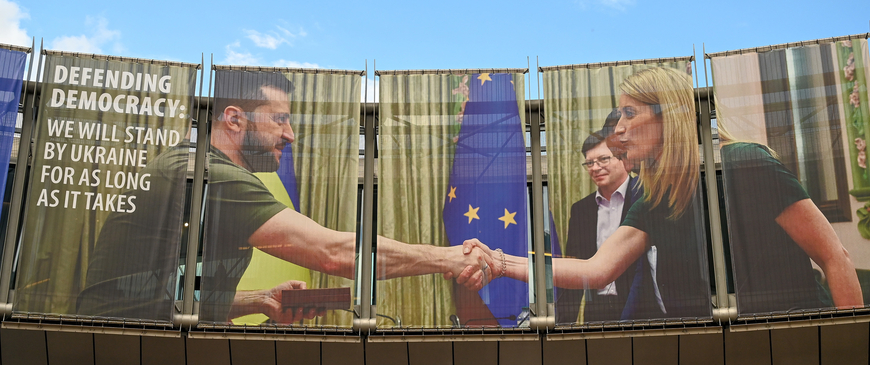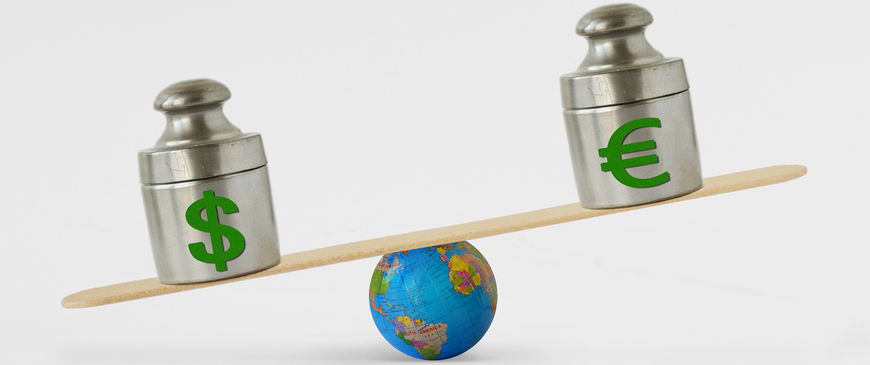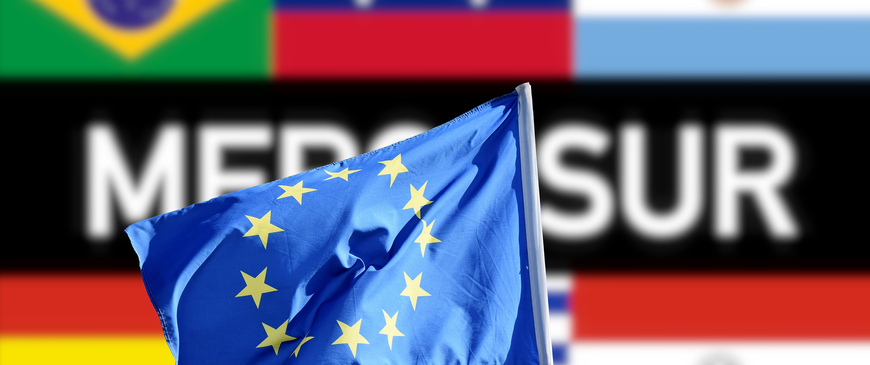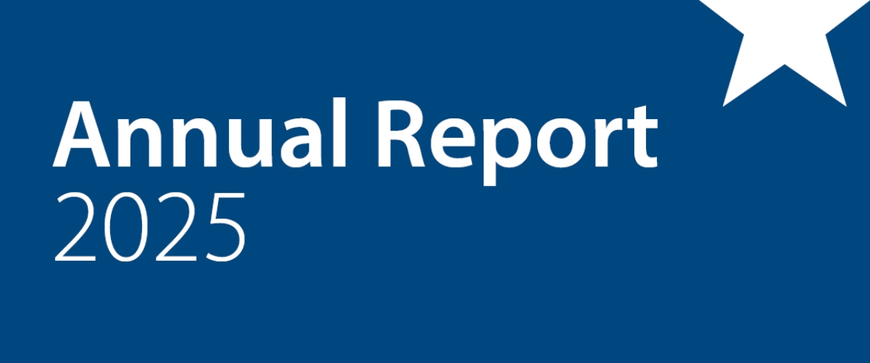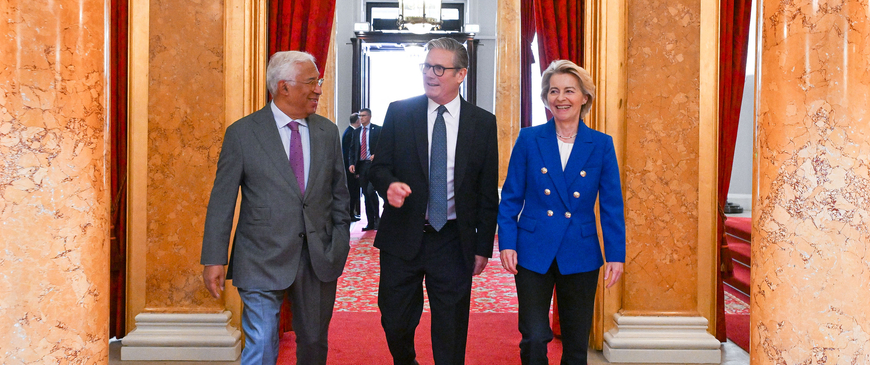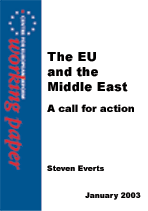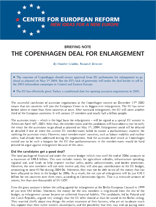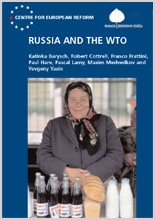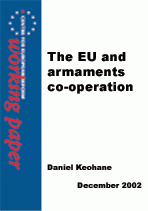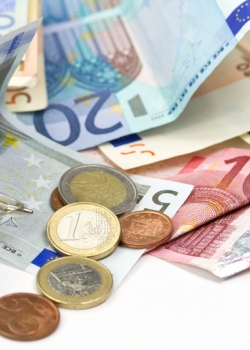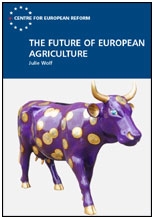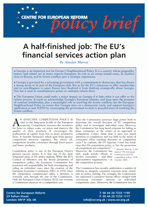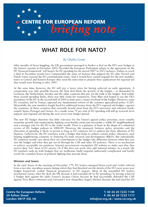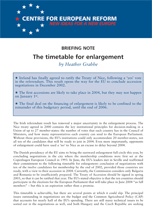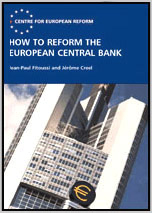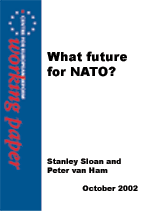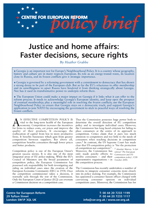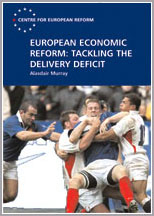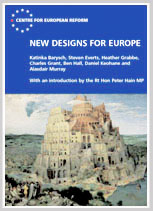Research
The EU and the Middle East: A call for action
03 January 2003
The EU urgently needs a more effective and coherent Middle East strategy. With war looming against Iraq and violence escalating between Israelis and Palestinians, the EU is under intense pressure to spell out what it can do to solve these problems.
The Copenhagen deal for enlargement
06 December 2002
The successful conclusion of accession negotiations at the Copenhagen summit on 13 December 2002 means that ten countries will join the European Union in its biggest-ever enlargement.
Russia and the WTO
06 December 2002
Russia first applied to the World Trade Organisation in 1993. But it was only when Vladimir Putin took over the presidency in 2000 that real progress towards accession became possible.
The EU and armaments co-operation
06 December 2002
Europe needs more military capabilities. Yet European defence budgets are static, and the cost of new military technologies is soaring. It is clear that governments need to extract more value out of each euro they spend.
The EU's budget: Time to go back to basics
02 December 2002
The EU's summit in November descended into a nasty row between EU leaders about the Union's finances. The dilemma member-states face is how to finance enlargement the accession of ten, poorer countries without taking funds away from current EU members or pushing spending above the existing budget ceiling of 1.27 per cent of EU GDP.
A credible competition process
02 December 2002
The European Commission's handling of competition policy is facing a crisis of credibility. In the last six months, the Commission which had never previously lost a merger case has suffered three reversals in the European Court of Justice.
Why Europe does not need a new president
02 December 2002
Powerful political forces in the Convention on the future of Europe and elsewhere, are calling for the appointment of a president of the European Council.
Issue 27 - 2002
29 November 2002
- The EU's budget: Time to go back to basics , Friedrich Heinemann
- A credible competition process , Alasdair Murray
- Why Europe does not need a new president , Peter Sutherland
Who's ready for EU enlargement?
01 November 2002
After more than a decade of preparation, 10 new members are set to join the EU on May 1st, 2004. However, in the final phase of negotiations, both the candidates and the EU have lost sight of the historic importance of this unprecedented expansion.
The future of European agriculture
01 November 2002
The need to reform European farm policies has never been clearer. Although the Brussels European Council in October put a ceiling on farm spending, the Commission's 'mid-term review' of the Common Agricultural Policy (CAP) will continue, and there is a real chance to change the policy's priorities over the next few years.
A half-finished job: The EU’s financial services action plan
01 November 2002
At the Lisbon summit in March 2000, EU heads of government signed up to an ambitious programme designed to achieve a viable single market in financial services by 2005. The financial services action plan (FSAP) is an attempt to reduce the legal obstacles which still prevent businesses – whether retail...
What role for NATO?
01 November 2002
NATO adapted well after the end of the Cold War. An organisation which had been focused on collective defence against the Soviet threat found new things to do: spreading security and stability through NATO enlargement to new members and partners in Central Europe, and applying force to impose – and...
The timetable for enlargement
21 October 2002
The Irish referendum result has removed a major uncertainty in the enlargement process. The Nice treaty agreed in 2000 contains the key institutional principles for decision-making in a Union of up to 27 member-states: the number of votes that each country has in the Council of Ministers, and how many...
How to reform the European Central Bank
11 October 2002
Europe's macro-economic policy framework is in trouble. Eurozone inflation continues to overshoot the ECB's 'reference value' of 2 per cent. Yet businesses and policy-makers are pleading with the ECB for lower interest rates.
What future for NATO?
04 October 2002
With war looming against Iraq, seven new members set to join the Alliance and a growing transatlantic gap in military power, NATO's role as the world's most effective military alliance is at stake.
Justice and home affairs: Faster decisons, secure rights
04 October 2002
Justice and home affairs (JHA) has become the EU’s most active policy area, but one of its least known or understood. It now accounts for about 40 per cent of the EU’s new legislation. There is strong public support for European countries to work together more closely to deal with...
European economic reform: Tackling the delivery deficit
04 October 2002
The EU has set itself a series of ambitious economic reform goals but has so far failed to deliver on its promises. Alasdair Murray argues in this report that the Convention on the future of Europe and the forthcoming inter governmental conference provide an opportunity for the EU to think afresh about how it can overcome the institutional obstacles to economic reform.
New designs for Europe
04 October 2002
Everybody agrees that the EU's institutions are in bad need of reform. In the Convention on the Future of Europe, and elsewhere, a real debate has begun on how Europe should be governed.
EU foreign policy: A necessity, not an option
01 October 2002
No one who has lived through the recent weeks of international crisis over Iraq can doubt that making a reality out of Europe's Common Foreign and Security Policy is both one of the highest priorities for the European Union and one of the most difficult tasks it faces.
Time for Mr ESDP?
01 October 2002
The EU's attempt to create a viable defence policy born of Franco British parentage at Saint Malo four years ago has, so far, made only limited progress.

